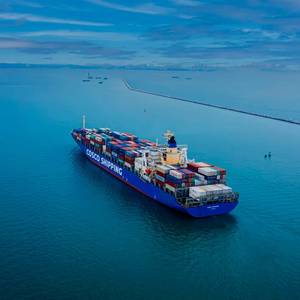
China's trade surplus topped $1 trillion for the first time as manufacturers seeking to avoid President Donald Trump's tariffs shipped more to non-U.S. markets in November, with exports to Europe, Australia and Southeast Asia surging.Shipments to the United States dropped by close to one-third from the same month a year before."The tariff cuts agreed under the U.S.
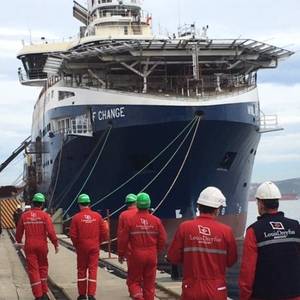
Louis Dreyfus Armateurs (LDA) and InfraVia, a private equity company in Europe, have entered into exclusive negotiations for InfraVia to acquire a majority stake in LDA, a group specializing in high value-added industrial marine services.LDA currently specializes in three growing segments, transportation and logistics of industrial equipment, mainly through dedicated Ro-Ro vessels

Iridium Communications Inc., a provider of global voice, data, and PNT satellite communications, unveiled a miniature application-specific integrated circuit (ASIC), the Iridium PNT ASIC. Engineered for integration into a wide range of electronic devices, the Iridium PNT ASIC will deliver authenticated, pole-to-pole positioning, navigation, and timing (PNT) data.

Honeywell introduced a breakthrough technology that converts agricultural and forestry waste into ready-to-use renewable fuels for hard-to-abate sectors, such as the maritime industry. The technology produces lower-carbon marine fuel, gasoline and sustainable aviation fuel (SAF) from inexpensive and abundant biomass sources like wood chips and crop residues.

South Korea's pledge to invest $350 billion in strategic U.S. industries as part of a trade deal with Washington is likely to be led by state policy institutions that will provide funding on a case-by-case basis, the country's vice finance minister said.Under a trade deal struck in July to cap U.S.
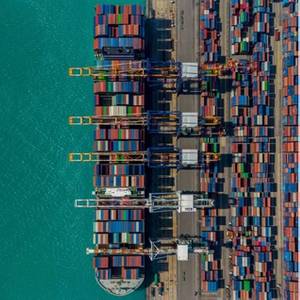
Thousands of license applications by U.S. companies to export goods and technology around the globe, including to China, are in limbo because turmoil at the agency in charge of approving them has left it nearly paralyzed, two sources said.While U.S. Commerce Secretary Howard Lutnick has become a familiar face touting President Donald Trump's tariff and trade deals

Three cabinet-level South Korean officials met U.S. Commerce Secretary Howard Lutnick in Washington for trade talks, Seoul said on Wednesday, as top business leaders were also reported to be flying in to help lobby for a deal on U.S. tariffs.South Korean Finance Minister Koo Yun-cheol joined Industry Minister Kim Jung-kwan and Minister for Trade Yeo Han-koo
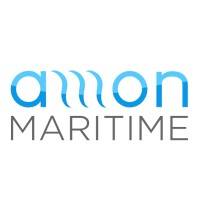
Amon Maritime has entered into a joint venture with Navigator Holdings Ltd., the owner and operator of the world’s largest fleet of handysize liquefied gas carriers.Pursuant to the Joint Venture, Navigator will acquire approximately 80% of the joint venture company, Navigator Amon Shipping AS, of Norway, with Amon Maritime holding approximately 20%, subject to the investment terms and conditions.

NAVTOR, an e-Navigation and performance technology provider to the maritime industry, has opened a new office in Dubai, United Arab Emirates, in a strategic move aimed at supporting regional growth.NAVTOR has launched NAVTOR Middle East, the company’s 13th dedicated regional office.

RightBridge Ventures Group has announced a proposed reverse acquisition of Swemar, which has entered into an agreement to acquire an offshore oil service company with operations across the Middle East, India, and South-East Asia.The company to be acquired by Swemar operates a fleet comprising Anchor Handler Tug Supply (AHTS) vessels and crew transportation vessels.
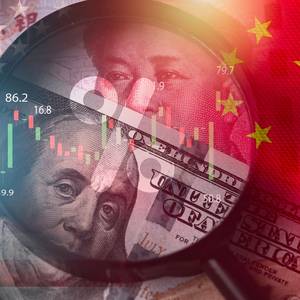
U.S. and Chinese officials said on Tuesday they had agreed on a framework to get their trade truce back on track and remove China's export restrictions on rare earths while offering little sign of a durable resolution to longstanding trade tensions.At the end of two days of intense negotiations in London, U.S.
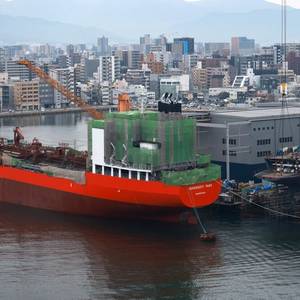
Japan's Ishiba signals increasing corn imports as part of US trade talksJapanese Prime Minister Shigeru Ishiba on signalled that increasing corn imports from the U.S. would be among options in trade negotiations with Washington, but warned Japan would never sacrifice its agriculture industry to win lower auto tariffs.Japan has made little headway in two rounds of trade talks with the U.S.